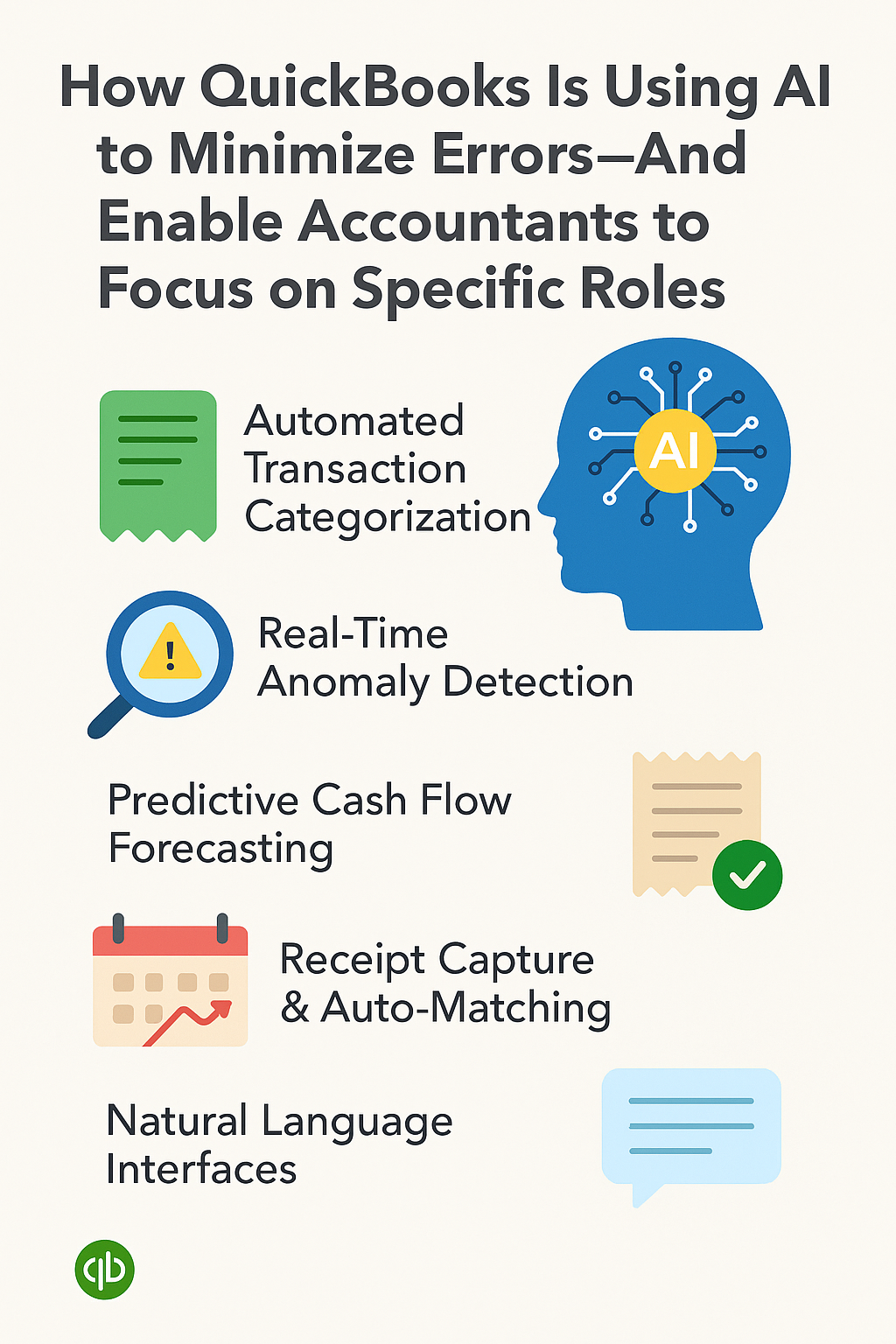The Blaize Accounting Blog
How QuickBooks Is Using AI to Reduce Errors
As a small business owner, your time is valuable, and so is your money. The last thing you need is to spend hours fixing spreadsheet mistakes or chasing down missing receipts. The good news? AI is changing the game inside accounting systems such as QuickBooks, and it’s already working for you. Here is how QuickBooks is quietly using artificial intelligence to make your bookkeeping smarter and your business more efficient: QuickBooks learns from your habits. If…
Read MoreOrganize Your Business Finances this Spring!
Spring is the perfect time to refresh not just your personal space but also your business’s financial health.
Read MoreCatch Up on Bookkeeping Before the Tax Season Closes: Best Practices for Last-Minute Financial Cleanup
Tax season can be stressful, especially if your bookkeeping is not up to date. But don’t worry, there’s still time to get organized and avoid unnecessary stress and potential penalties. Here’s how to efficiently catch up on your financial records before the tax season deadline. Gather all receipts and invoices, both digital and paper. Consider using tools like Expensify or Hubdoc to digitize and organize them in one place. This not only saves time but…
Read MoreYour Ultimate Guide to Stress-Free 1099 Preparation
1099 Preparation Guide
Read MoreActionable Steps Before Year-End: The Power of Automation & Accurate Record-Keeping
In today’s fast-paced business world, staying competitive means embracing the right tools and strategies. Automating financial systems and maintaining accurate records aren’t just operational improvements—they’re game changers. Here’s why: Key Benefits of Financial Automation Time Savings: Automate repetitive tasks like data entry, invoicing, and reconciliations, giving you more time to focus on strategic initiatives. Enhanced Accuracy: Reduce human errors with automated processes, ensuring your financial records are always precise and reliable. Real-Time Insights: Access up-to-date…
Read MoreCredit Card Rewards for Small Businesses
Maximize Your Business Spending with Credit Card Rewards! When used wisely, a business credit card can offer incredible rewards that benefit your bottom line. Here’s what some credit card companies are offering: Cash Back on Purchases – Earn back a percentage on everyday expenses, from office supplies to fuel. Travel Perks – If you or your team is on the road often, find a card with travel rewards like miles or hotel points to reduce expenses. Sign-Up Bonuses – Many…
Read MoreAre you Thinking About Opening a Business Bank Account? Look Out for These Incentives!
Banks compete for your business, and many offer fantastic perks when you open a new business account. Here are some incentives that you could gain: Cash Bonuses – Some banks offer up to hundreds of dollars just for signing up and meeting a minimum deposit requirement.🆓 Fee Waivers – Enjoy reduced or waived fees on services like monthly maintenance, wire transfers, or overdrafts. Business Tools & Support – Access to specialized business tools or consultations can be a…
Read MoreThe Difference Between a Bookkeeper and an Accountant
One area that often creates confusion in financial management is determining the difference between the role of a bookkeeper and an accountant. You might wonder, “Do I need a bookkeeper, an accountant, or both?” Understanding the distinct roles of these financial professionals can help you make informed decisions and keep your business running smoothly. Let’s break down the differences. The Role of a Bookkeeper A bookkeeper is like the diligent librarian of your business’s financial…
Read MoreThe Importance of Regularly Updating Your Financial Plan
Creating a financial plan is a critical step for any business, but it doesn’t end there. The business environment is dynamic, and your financial plan should be too. Regularly revisiting and updating your financial plan is essential to ensure it remains relevant and effective. Keeping your financial plan current is crucial for your business’s success, here is why. Adapting to Market Changes The business landscape is constantly evolving. Market trends, customer preferences, and competitive dynamics…
Read More





